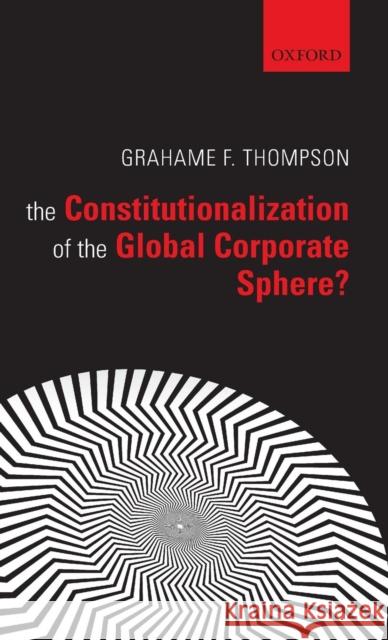The Constitutionalization of the Global Corporate Sphere? » książka
The Constitutionalization of the Global Corporate Sphere?
ISBN-13: 9780199594832 / Angielski / Twarda / 2012 / 200 str.
With the advent of globalization--where corporate organizations and the commercial relations that accompany them are argued to be becoming increasingly transnational--the locus of powers, authorities, and responsibilities has shifted to the global level. The nation-state arena is losing its capacity to regulate and control commercial processes and practices as a transformational logic kicks-in, associated with new forms of global rule-making and governance. It is this new arena of global rule-making that can be considered as a surrogate form of global constitutionalization, or "quasi-constitutionalization." But as might be expected, this surrogate process of constitutionalization is not a coherent system or set of rounded outcomes but full of contradictory half-finished currents and projects: an "assemblage" of many disparate advances and often directionless moves--almost an accidental coming together of elements. It is this assemblage that is to be investigated and unbundled by the analysis of the book.
The book discusses governance, law, and constitutional matters in the context of international corporate constitutional governance. It examines how and why the business world, commercial relations, and company activities have increasingly become subject to legal and constitutional forms of regulation and governance at the international level. It analyzes how we should characterize the process that has seen the international corporate arena increasingly subject to juridical and constitutional-like regulatory initiatives and interventions and whether this amounts to a new attempt to subject international commercial relations to the "rule of law" and, indeed, to rule the world through these very means.











